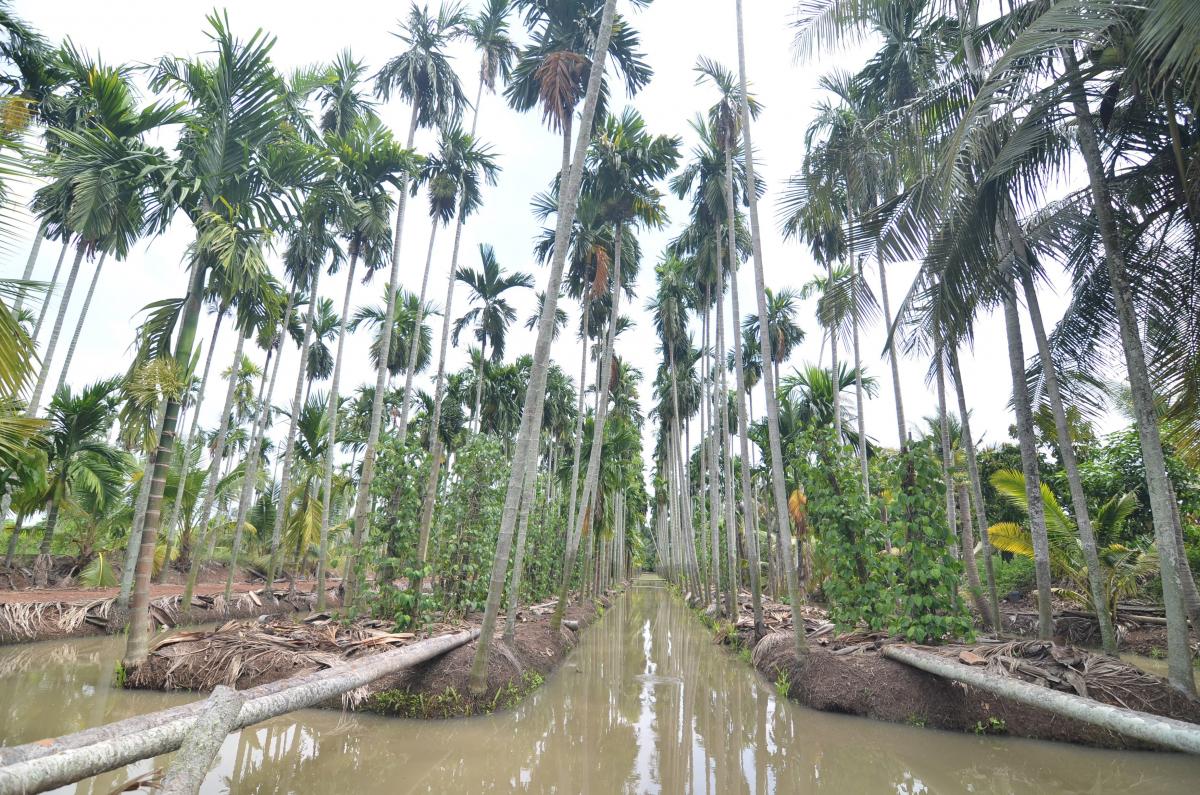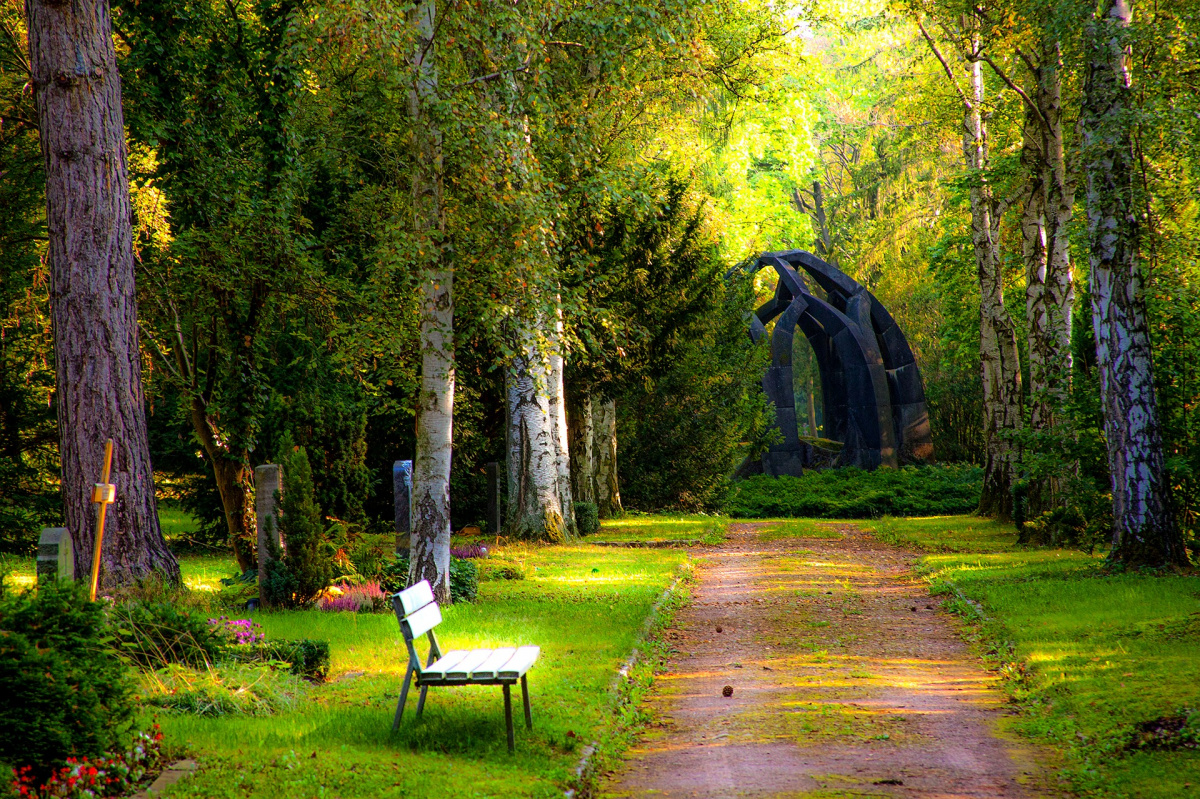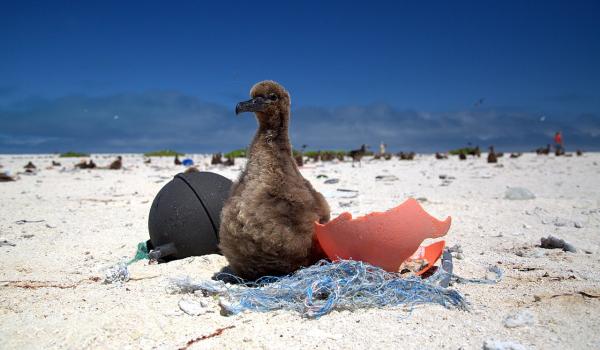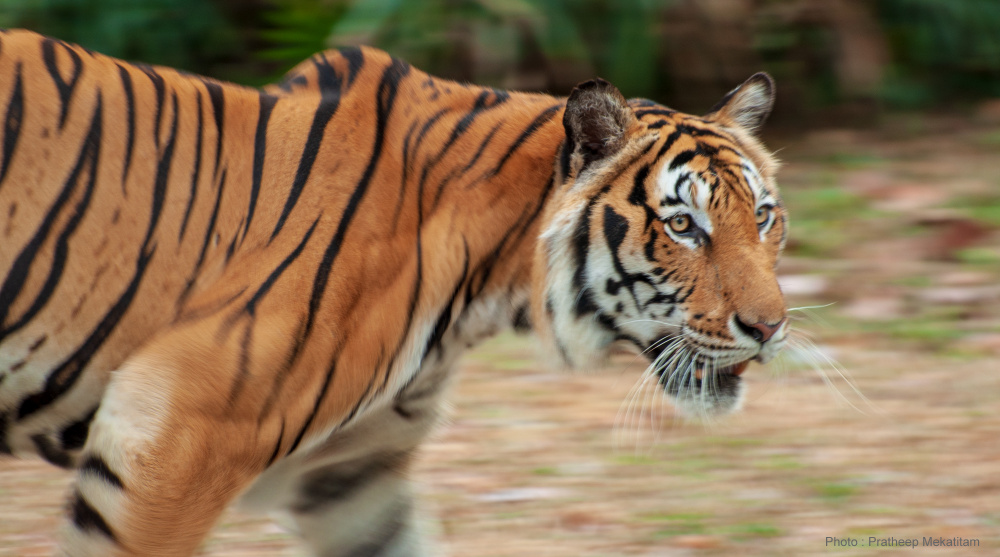Thai wetlands at risk: Climate change will affect marine biodiversity and human livelihoods
The Mekong WET Project, funded by the International Climate Initiative (IKI), recently published climate change vulnerability assessment reports for Bang Pakong River Wetland in Chachoengsao Province and Kaper Estuary, Laemson Marine National Park, Kraburi Estuary in Ranong Province in Thailand. The goal of the assessments, which included a consultation with local communities living in and around the wetland sites, was to gain a comprehensive understanding of the impacts that climate change will have on wetland species, habitats, and livelihoods in the Indo-Burma Region. The results revealed that rising temperatures would have a negative impact on coral reefs and estuaries, significantly affecting marine biodiversity and the livelihood of fisher folk.

Photo: ©IUCN
The two wetland sites host biodiverse flora and fauna, and the communities around the sites are heavily dependent on these ecosystems to support their livelihoods. Climate change poses a threat to both the health of the ecosystems and the people who rely on them. Climate projections for both sites include increased rainfall during the rainy season and decreased rainfall during the dry season, with higher temperatures leading to droughts and increased water salinity. Sea level rise also threatens the two coastal areas, exacerbating coastal erosion rates, flooding, and saltwater intrusion.
These impacts will disproportionally affect specific ecosystems at each site. In Bang Pakong, the estuary, islands and oxbows are highly vulnerable to droughts, floods and rising sea levels and increased soil salinity. In Ranong, coral reef ecosystems are the most vulnerable to rising water temperatures. Seagrass beds, canals and rivers, and coastal and marine areas are also at risk due to the warmer waters, increased frequency of storms, and increased soil salinity.
These habitat impacts will also affect the species that reside within them. Bang Pakong wetland hosts the critically endangered Somphong’s rasbora (Trigonostigma somphongsi) a fish affected by droughts, increased temperatures and salinity changes. Also, the endangered giant freshwater stingray (Himantura chaophraya), and Irrawaddy dolphin (Orcaella brevirostris) are at risk from water pollution, sedimentation, and increasing water temperatures.
In Bang Pakong, elderly people, who are unable to work in the industrial or service sectors and local fisher folk are most vulnerable to climate change. Because of climate change, wetland resources are declining and water quality is deteriorating. Smallholder farmers that depend on the production of rice, fruits and farmed fish are also at risk from high tides, saline water, drought, and higher temperatures.
In Ranong, scleractinian, also called stony corals or hard corals, have the highest climate change vulnerability of all species surveyed, as water temperatures above 30.1°C for more than three weeks can induce coral bleaching and lead to death. Endangered water onions (Crinum thaianum) are also highly vulnerable to changing water quality and magnitudes of currents, especially from heavy rains.
The agriculture and fisheries sectors in Ranong are also highly vulnerable to climate change. Changes in precipitation can affect crop yields while villagers reported that increased severity of storms affects fishing conditions and economically important marine species.
Over the next four months, Mekong WET coordinators will work with community members as well as local and national wetlands managers to develop a robust climate change adaptation plan to strengthen wetlands through ecosystem restoration.
To learn more about the assessment results, view the Climate Change Vulnerability Assessment Summary Reports for Bang Pakong River Wetland and Kaper Estuary, Laemson Marine National Park, Kraburi Estuary.
The full reports of the vulnerability assessment studies can be viewed here: Climate Change Assessment for Bang Pakong River Wetland, Thailand and Climate Change Assessment for Kaper Estuary, Laemson Marine National Park, Kraburi Estuary, Thailand.
________________________
Funded by the International Climate Initiative (IKI) of the German Federal Ministry for the Environment, Nature Conservation, Building and Nuclear Safety (BMUB), and to be implemented until 2020, the “Mekong WET: Building Resilience of Wetlands in the Lower Mekong Region” project aims to build climate resilience by harnessing the benefits of wetlands in Cambodia, Lao PDR, Thailand, and Viet Nam. Mekong WET will help these countries to address their commitments to the Ramsar Convention, an international treaty for the conservation and sustainable use of wetlands, and to achieve the Aichi Biodiversity Targets. The project is also supporting the IBRRI and the implementation of the IBRRI strategic plan 2019-2024.



